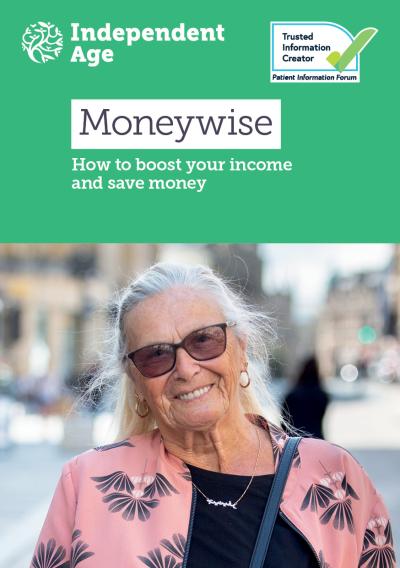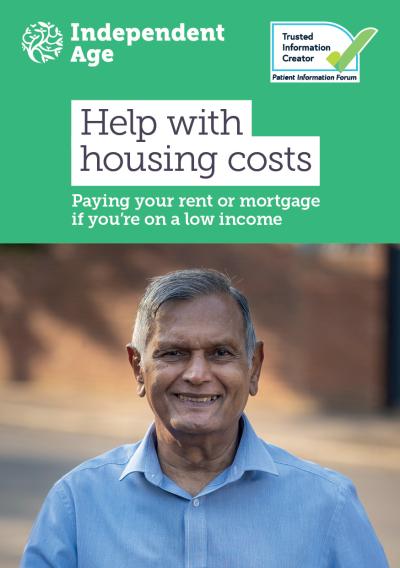Related publications

Moneywise

Housing costs can take up a big part of our budgets. If you’re on a low income you could be entitled to extra money towards your rent or mortgage.
Housing Benefit is help to pay your rent if you're on a low income. It might cover all or part of your rent and may also cover some service charges.
How much you get depends on:
You may get more help if you're receiving other benefits like Attendance Allowance, Carer's Allowance or Carer Support Payment, Disability Living Allowance or Personal Independence Payment. You are probably eligible if you claim Guarantee Pension Credit.
If you aren’t claiming Pension Credit, you may still be eligible if you are responsible for paying rent on your home, have less than £16,000 in savings or investments, and are on a low income.
To get Housing Benefit, one of the following must also apply to you:
If you live with a partner, only one of you needs to make a joint claim. You can claim if:
or
You must both have reached State Pension age, except in certain circumstances. If you are not eligible for housing benefit as a couple you may be able to claim Universal Credit instead.
For more information, see our factsheet Housing Benefit.
If you’re a private tenant, how much Housing Benefit you can get depends on:
If you’re disabled and receive regular overnight care from a carer who doesn’t live with you, an extra bedroom for the carer to stay overnight is usually allowed. You can find out how many bedrooms you are entitled to through the Valuation Office Agency website.
You can find out what the LHA is in your area from your local council or the Valuation Office Agency. If your rent is more than the maximum, you’ll have to make up the difference. You may be able to get short-term help from the Discretionary Housing Payments scheme (see below).
If your Housing Benefit doesn't cover all your rent, you may be able to get a Discretionary Housing Payment (DHP). A DHP can’t cover service charges if they are included in your rent. Contact your local council to find out how to apply or visit Gov.uk for more information.
You may also be able to get a one-off payment for costs such as rent deposits or rent in advance.
Your council decides whether to award a DHP, how much you’ll get and for how long you’ll get it. They decide this based on your circumstances. Give as much information as possible when you apply, including:
You should explain why it's difficult for you to pay the shortfall in your rent. Our advisers can help you apply – contact our Helpline to book an appointment.
If you own your home, you may qualify for a Support for Mortgage Interest (SMI) loan. This is help with interest payments on your mortgage, and on certain loans for repairs or improvements to your home.
SMI is paid in the form of a loan, which must be repaid when you die or sell your home. If you were getting it as a benefit before 6 April 2018, you won’t have to repay the money you’ve already received and you have the option to take out an SMI loan. Visit MoneyHelper for more information.
An SMI loan is calculated using a standard rate of interest, not your lender’s rate. It’s only available to cover interest, not the amount borrowed. There is usually an upper limit of £200,000 on the amount you can claim, or £100,000 if you get Pension Credit.
You may qualify for an SMI loan if you're not working and you're getting one of the following benefits:
To check if you qualify or to ask about how to claim, contact the Pension Service if you’re getting Pension Credit, Jobcentre Plus or the Universal Credit helpline.
SMI is usually paid direct to your lender. If you’re on Pension Credit or you’ve reached Pension Credit qualifying age, this should happen straightaway. You’ll have to wait 39 weeks if you’re working age, or until you've been paid Universal Credit for three consecutive months if you're claiming it.
It’s a good idea to get advice before you decide whether to take out an SMI loan.
If you live in Scotland and are finding it difficult to pay your mortgage, you might be able to get help from the Home Owner’s Support Fund. It is divided into two schemes: Mortgage to Shared Equity and Mortgage to Rent.
Your application for both of these schemes will not be considered unless you’ve taken advice from a money adviser, so you will have to contact an adviser first. Citizens Advice could help.
The rules around this can be complicated. If you feel like the Home Owner’s Support Fund could help you, contact our Helpline to arrange to speak with an adviser.
There may be other options if you’re struggling to pay your mortgage. Read our webpage Problems paying your mortgage for more information.

To apply for Housing Benefit, contact your local council to ask for a claim form. You can find their contact details on Gov.uk. If you don't hear anything after 2 weeks, you can contact them to ask for an update on your application.
For more information on SMI loans, visit Gov.uk. For more information on the Home Owner’s Support Fund, visit myscot.gov.